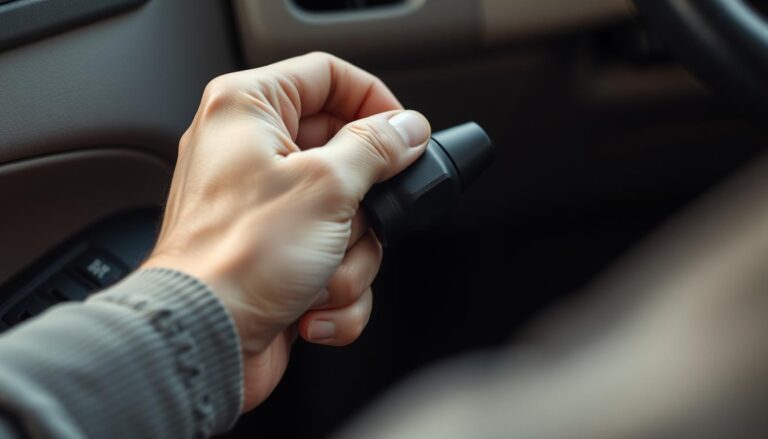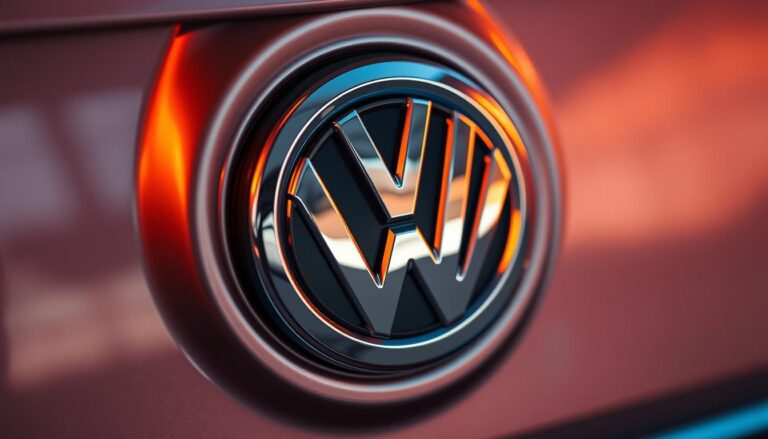Ever stood awkwardly at the auto repair shop counter, bill in hand, wondering if you should tip a mechanic? You’re not alone. While tipping is straightforward in restaurants or hair salons, the rules seem murky when it comes to automotive services. Unlike waitstaff or barbers, mechanics typically earn hourly wages or flat rates, making the tipping question genuinely confusing for many car owners.
This guide will walk you through the unwritten rules of mechanic tipping etiquette, helping you navigate this social uncertainty with confidence. We’ll explore when tipping might be appropriate, how much to consider giving, and alternative ways to show your appreciation when cash doesn’t seem right.
Mechanic Tipping Norms: What’s Standard?
Unlike the restaurant industry where 15-20% is standard, there’s no universally accepted rule for tipping mechanics. The auto repair industry doesn’t traditionally operate on a tipping model, which explains much of the confusion.
Here’s what you should know about the general norms:
- Tipping mechanics is not expected or required in most situations
- Many mechanics work at hourly rates or earn commission on services
- Independent shops may have different cultures than dealerships
- Regional differences exist across the country
According to industry insights, mechanics typically don’t expect tips for standard service. However, that doesn’t mean a tip wouldn’t be appreciated for exceptional work or going above and beyond.
Quick Guide: Mechanic Tipping
Standard Service: Tipping not expected but appreciated for quality work
Exceptional Service: Consider 10-15% of labor costs or $10-$20 for smaller jobs
Emergency/After-Hours: More appropriate to offer a tip (15-20%)
Dealerships: Less common to tip due to corporate policies
Independent Shops: More receptive to tips, especially for going above and beyond
When Might Tipping Be Appropriate?

While tipping isn’t mandatory, certain situations might warrant showing extra appreciation to your mechanic. Consider these scenarios where tipping could be appropriate:
Emergency or After-Hours Service
When a mechanic accommodates your emergency or stays late to fix your vehicle, they’re going beyond standard service. A mechanic who comes in on a weekend or stays after closing time to get you back on the road deserves recognition for prioritizing your needs.
Exceptional Service Quality
Did your mechanic solve a complex problem that others couldn’t diagnose? Or perhaps they completed repairs faster than expected? When a mechanic demonstrates exceptional skill or efficiency, a tip can acknowledge their expertise.
Going Above and Beyond
Sometimes mechanics perform additional checks or minor fixes without charging extra. For instance, if they notice and fix a small issue while working on something else, or clean parts of your vehicle that weren’t part of the service, these extra efforts merit appreciation.
Discounted or Free Services
If your mechanic offers a significant discount or performs minor services for free, tipping can be a way to acknowledge their generosity while ensuring they’re compensated fairly for their time and expertise.
Long-Term Relationship
If you have a trusted mechanic you’ve worked with for years, occasional tipping can help maintain that positive relationship, especially during holiday seasons or after they’ve handled a particularly challenging repair.
Factors Influencing Your Tipping Decision

Several factors should influence your decision about whether to tip a mechanic and how much:
Service Cost and Complexity
The complexity of the repair job plays a significant role in determining whether a tip is appropriate. Simple services like oil changes or tire rotations typically don’t warrant tips, while complex repairs requiring specialized skills might deserve recognition.
For expensive repairs, consider that the mechanic may already be earning a fair amount from the job. In these cases, a smaller percentage (5-10%) might be appropriate if you still want to tip.
Type of Repair Shop
The setting where you receive service influences tipping norms:
Dealership Mechanics
Dealership mechanics often operate under corporate policies that may discourage or prohibit accepting tips. They typically receive higher base pay and benefits compared to independent shops.
If you want to tip at a dealership, you might need to be discreet or check their policy first.
Independent Repair Shops
Mechanics at independent shops may be more accustomed to receiving tips, especially shop owners who provide personalized service. These environments often foster stronger customer-mechanic relationships.
Tips are generally more welcome and appropriate in these settings.
Quality of Service and Communication
Consider how well the mechanic explained the issues, provided options, and kept you informed throughout the repair process. Clear communication and transparency deserve recognition, especially when they help you make informed decisions about your vehicle.
Regional and Cultural Factors
Tipping practices vary significantly by region. Urban areas and regions with higher costs of living may have different expectations than rural areas. In some communities, tipping mechanics is more common than in others.
How Much Should You Tip a Mechanic?

If you’ve decided that tipping is appropriate for your situation, the next question is: how much should you tip a mechanic? While there’s no one-size-fits-all answer, here are some guidelines:
Percentage-Based Approach
For substantial repairs or service:
- Standard appreciation: 5-10% of the labor cost (not parts)
- Exceptional service: 10-15% of the labor cost
- Emergency or after-hours service: 15-20% of the total bill
Flat Amount Approach
For smaller jobs or quick services:
- Minor services: $5-$10
- Medium complexity jobs: $10-$20
- Complex or emergency services: $20-$50
Pro Tip: When calculating a tip, consider focusing on the labor portion of your bill rather than parts. The mechanic’s skill and time are reflected in the labor charges, while parts represent costs the shop incurs.
Adjusting Based on Circumstances
These amounts should be adjusted based on your specific situation:
- For discounted services, consider tipping based on what the full price would have been
- For free minor services, a small cash tip of $5-$10 shows appreciation
- During holiday seasons, you might consider being more generous
Remember that these are guidelines, not rules. Your financial situation and level of satisfaction with the service should ultimately determine how much you tip, if anything.
Alternatives to Tipping Your Mechanic

If you’re uncomfortable with cash tipping or it doesn’t seem appropriate for your situation, there are several meaningful alternatives to show appreciation:
Leave Positive Reviews
In today’s digital world, positive online reviews are incredibly valuable to repair shops. Taking a few minutes to leave a detailed review on Google, Yelp, or social media can help the business attract new customers and recognize your mechanic’s good work.
Be specific about what made your experience positive and mention your mechanic by name if possible.
Refer Friends and Family
Word-of-mouth referrals are golden for auto repair shops. Recommending your mechanic to friends, family, and colleagues is a powerful way to show appreciation while helping their business grow.
Many shop owners value new customers more than one-time tips, as referrals can lead to long-term business relationships.
Bring Refreshments

A simple gesture like bringing coffee and donuts for the shop staff can be a welcome alternative to cash tipping. This works especially well if you have a regular relationship with the shop or for holiday season appreciation.
Small Gifts or Gift Cards
For mechanics you work with regularly, consider small gifts during holidays or after major repairs. Gift cards to local restaurants, coffee shops, or auto parts stores are usually well-received and appropriate.
Express Verbal Appreciation
Sometimes, a sincere “thank you” and acknowledgment of quality work can be meaningful. Taking a moment to express specific appreciation for their expertise, honesty, or efficiency shows you value their work.
Write to Management
For dealerships or larger shops, writing a letter or email to management praising your mechanic can lead to recognition that benefits their career. This can be particularly valuable in corporate environments where tips might not be accepted.
Mechanic Tipping Etiquette: How to Do It Right

If you decide to tip a mechanic, how you do it matters. Here are some guidelines for handling the interaction gracefully:
Timing Your Tip
The best time to tip is after the service is completed and you’ve received your vehicle back in good working order. This ensures you’re tipping based on the actual quality of work performed.
Direct Delivery
Whenever possible, give the tip directly to the mechanic who worked on your vehicle. This might require asking for them specifically if you’re dealing with a service advisor or cashier.
A simple phrase like, “Could I speak with the technician who worked on my car? I’d like to thank them personally,” works well.
Discreet Presentation
Offer the tip discreetly, perhaps with a handshake, to avoid creating awkward situations with other customers or staff. This is especially important in environments where tipping might not be common.
What If They Refuse?
Some mechanics may decline tips due to company policy or personal preference. If this happens, respect their decision graciously. You can say something like, “I understand, but I really appreciate your excellent work,” and consider one of the alternative appreciation methods instead.
Holiday Tipping
If you have a regular mechanic, holiday tipping is more widely accepted. Consider a card with cash or a gift card during the December holiday season as a year-end thank you for ongoing service.
Regional and Cultural Differences in Mechanic Tipping

Tipping practices vary significantly across different regions of the United States and between urban and rural areas:
Urban vs. Rural Differences
In general, tipping mechanics is more common in urban areas where service costs tend to be higher and tipping culture is more ingrained across various industries. Rural areas often have different expectations, with personal relationships sometimes valued over monetary tips.
Regional Variations
While not universal, some regional patterns have emerged:
Northeast
Tipping mechanics is more common, particularly in metropolitan areas like New York and Boston. Cash tips for quality service are generally accepted and sometimes expected for exceptional work.
South
Personal relationships often matter more than monetary tips. Bringing food, beverages, or other tokens of appreciation might be more common than cash tipping in many southern communities.
West Coast
Practices vary widely, with cash tipping more common in affluent areas. In tech-centered regions, positive online reviews might be equally valued as tips for building business.
These regional differences highlight why there’s no one-size-fits-all answer to whether you should tip a mechanic. Local customs and expectations play a significant role in what’s considered appropriate.
Frequently Asked Questions About Tipping Mechanics

Is a good tip for a mechanic?
A tip is generally considered appropriate for medium-complexity jobs or services that take 1-2 hours to complete. For major repairs requiring several hours of labor, might be on the lower end, while for quick services like an oil change, it would be quite generous. Consider the complexity of the work, the quality of service, and your budget when deciding if is appropriate.
Do you tip mechanics at dealerships?
Tipping at dealerships is less common than at independent shops, and some dealerships have policies prohibiting their technicians from accepting tips. However, if a dealership mechanic provides exceptional service, you can still offer a tip. If they decline due to policy, consider alternatives like speaking to a manager about their excellent work or leaving a positive review mentioning them by name.
How do I tip a mechanic who fixed my car for free?
When a mechanic performs a service for free, offering a tip is especially appropriate. Consider the value of the service you received and what you would have paid elsewhere. A good guideline is to tip 15-20% of what the service would typically cost, or at least – for minor repairs. This acknowledges their generosity while ensuring they’re compensated for their time and expertise.
Should I tip for warranty work?
Tipping for warranty work is generally not expected since the manufacturer is covering the cost of repairs. However, if the mechanic provides exceptional service, takes extra time to explain issues, or goes beyond the scope of the warranty work, a small tip or alternative gesture of appreciation might be appropriate. Use your judgment based on the level of service provided.
Is it better to tip in cash or through the bill?
Cash tips are generally preferred because they go directly to the mechanic who performed the work. When you add a tip to a credit card payment, it might be subject to processing fees or may not reach the specific technician who worked on your vehicle. Whenever possible, have cash on hand if you plan to tip your mechanic.
Final Thoughts on Tipping Your Mechanic
Navigating the question of whether to tip a mechanic ultimately comes down to your personal judgment and the specific circumstances of your repair experience. While tipping isn’t expected in the auto repair industry, it can be a meaningful way to recognize exceptional service, technical expertise, or extra effort.
Remember that there are multiple ways to show appreciation beyond cash tips. Whether you choose to tip, leave a review, refer friends, or simply express verbal gratitude, acknowledging quality work helps build positive relationships with the skilled professionals who keep your vehicle running safely.
The most important takeaway is that tipping should be a genuine expression of appreciation rather than an obligation. By considering the factors we’ve discussed and using the guidelines provided, you can make confident decisions about when and how to tip a mechanic in various service situations.


